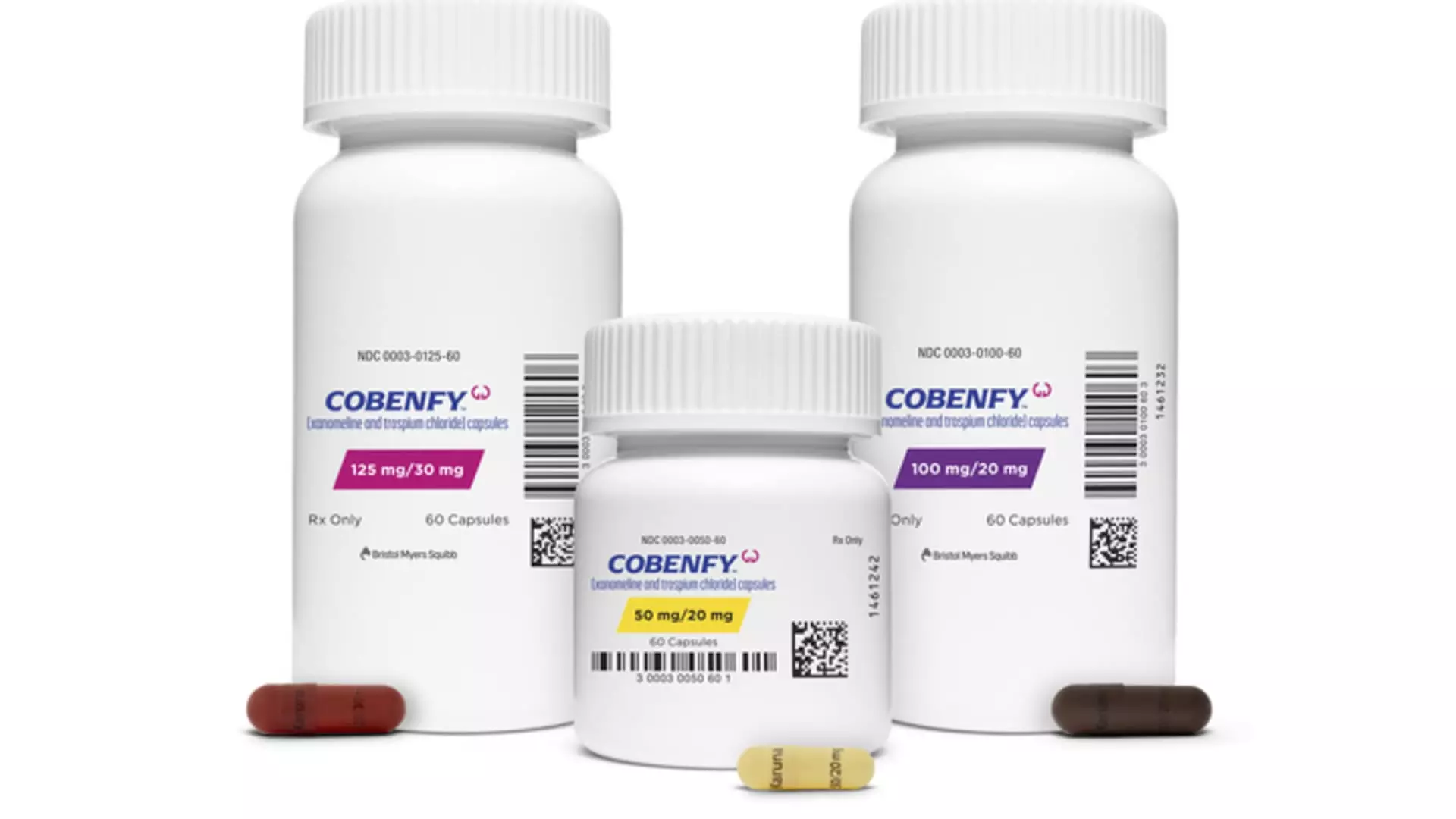Schizophrenia is a severe mental health disorder characterized by a range of symptoms that impact an individual’s thoughts, emotions, and behaviors. It manifests through various features such as paranoia, hallucinations, delusions, and significant alterations in emotional and behavioral responses. These symptoms can severely disrupt everyday activities, making it challenging for patients to engage in work, education, and social interactions. The onset of schizophrenia typically occurs during late adolescence to early adulthood, primarily affecting individuals in their late teens to early thirties. This critical age range highlights the urgent need for effective treatment options that can improve patients’ quality of life.
Given the condition’s debilitating nature, the recent approval of Cobenfy by the Food and Drug Administration (FDA) represents a monumental step in mental health treatment. The drug, developed by Bristol Myers Squibb, marks the introduction of a novel treatment strategy for schizophrenia after more than 70 years of reliance on older medications.
Breaking New Ground with Cobenfy
Cobenfy, the brand name for Bristol Myers Squibb’s new medication, is anticipated to be available by late October 2023. This twice-daily pill may provide a necessary lifeline for the nearly 3 million adults in the U.S. facing schizophrenia, particularly considering that only 1.6 million of these individuals receive treatment. Alarmingly, about 75% of those treated discontinue their medications within the first 18 months due to challenges in finding tolerable and effective options.
The approval of Cobenfy became feasible following Bristol Myers Squibb’s substantial $14 billion acquisition of Karuna Therapeutics last year—a strategic move intended to bolster the company’s portfolio as patents on top-selling medications are set to expire. Analysts have expressed optimism, viewing Cobenfy as a potential multi-billion dollar revenue generator in the long term; however, they caution that it may have a slow uptake in the market.
Andrew Miller, a key figure in Karuna Therapeutics and now an advisor to Bristol Myers Squibb, emphasized the transformational nature of this approval. He remarked on the historically overlooked needs of the schizophrenia population within the medical research landscape. The sentiment revolves around the hope that, five to ten years from now, society will witness a tangible impact on patient care and treatment efficacy due to the advent of Cobenfy.
Cobenfy comes with a price tag of $1,850 for a monthly prescription, which translates to approximately $22,500 annually before insurance interventions. While the pricing aligns with current branded oral schizophrenia drugs, it’s crucial to note that around 80% of schizophrenia patients receive care through Medicare or Medicaid, leading company executives to predict that most patients will face minimal out-of-pocket costs. However, it raises a critical issue regarding accessibility for uninsured patients—a point that will require urgent attention.
The Unique Mechanism of Action
Unlike conventional antipsychotics that primarily block dopamine receptors in the brain, Cobenfy employs a innovative mechanism combining two distinct components: xanomeline and trospium. Xanomeline activates specific muscarinic receptors, lowering dopamine activity while sidestepping some of the severe side effects commonly associated with existing treatments. Trospium is included to mitigate gastrointestinal discomforts that xanomeline may induce, such as nausea and diarrhea—previous side effects can lead to medication discontinuation.
The enthusiasm surrounding Cobenfy is palpable among healthcare providers, who are eager for alternatives that minimize side effects while maximizing efficacy. As Bristol Myers Squibb’s commercialization efforts lead to greater familiarity and comfort with prescribing Cobenfy, analysts speculate that it may soon become the standard treatment option for individuals with schizophrenia.
The approval of Cobenfy was based on extensive clinical trials, which included comparisons against placebo treatments, assessing the drug’s safety and tolerability over extended periods. Data indicated that Cobenfy significantly alleviated schizophrenia symptoms compared to traditional alternatives, with side effects predominantly being mild to moderate and gastrointestinal in nature.
Bristol Myers Squibb has future expansion plans for Cobenfy beyond schizophrenia, with ongoing clinical trials exploring its potential use for Alzheimer’s disease patients experiencing psychosis. This could signify a broader therapeutic range for the drug, potentially impacting various patient demographics and mental health considerations.
Cobenfy’s launch could mark a significant turning point in the approach to treating schizophrenia, offering hope to patients who have previously found traditional therapies insufficient. As the healthcare community welcomes this new tool, monitoring its real-world effectiveness and patient outcomes will be paramount in reshaping mental health treatment paradigms.

Leave a Reply